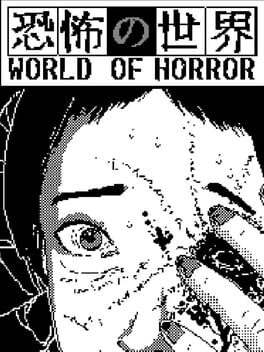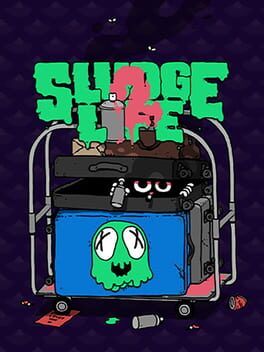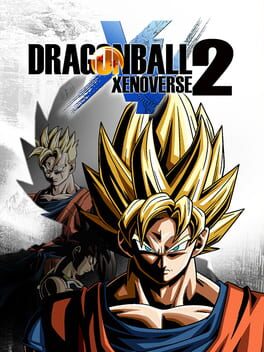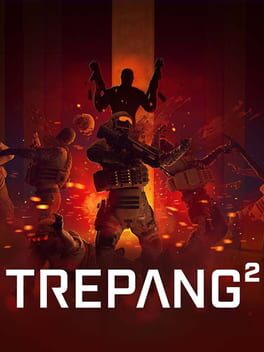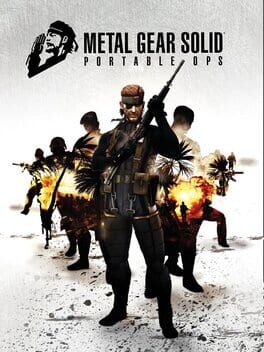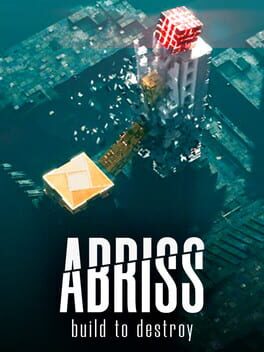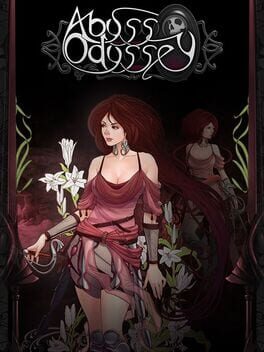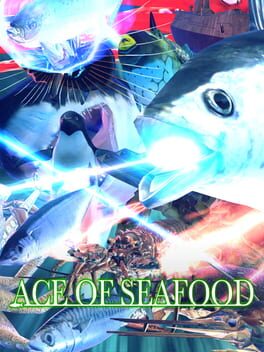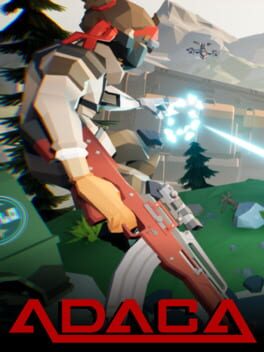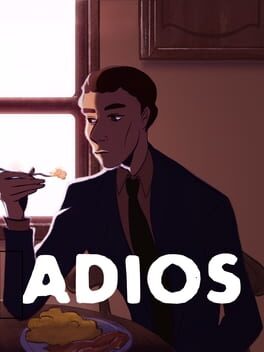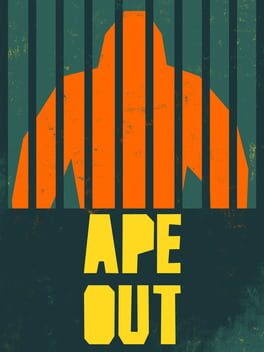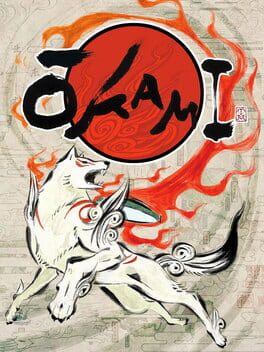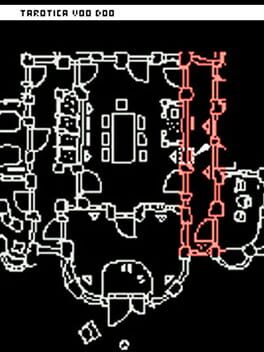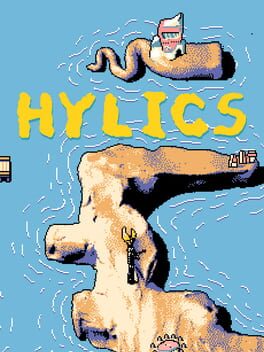dryocampa
5 reviews liked by dryocampa
World of Horror
2020
CW: Sui, Possible Transantagonism, COVID-19
All of my life, I've been consumed by an anxiety around people. The unpredictability of how they act, why they do what they do and the sudden emotional shifts of others, has frightened me as I spent a large amount of it seeking connection, care and companionship. As such, my encounters with people have been littered with everyday fears that festered silently amongst a field of caution within.
And then, the 2020 COVID-19 Pandemic rendered people no longer just frightening but avatars of illness and death. Everyone wasn't just an emotional unknown, but a physical one, where isolation brought loneliness but company brought the fears of somethings far worse. It was no longer just a fear of people as an experience, but also on a conceptual level that drove me further inside and afraid of the world. And in the wake of that, came the early release of World of Horror.
World of Horror is a roguelike, point and click adventure game in which your choice of character must stop an Old God, corresponding to ideas and myths built around the drab and dreary Lovecraft canon or the works of horror creators like Junji Ito, George Romero, Sam Raimi and so forth, by stopping the summoning of this being who you cannot defeat by those who wish them brought here more than anything; cultists, rapt lovers of the end of the world and those who think the end of us as people is what is best for us all. And in it is in this timeframe, with the mindset I have told you, in a world filled with people ushering on endings for people without any semblance of remorse of understanding, that World of Horror so perfectly captured me.
The game itself is drenched in atmosphere, from the use of classic black and white colour palette's that seem reminiscent of old manga to the use of creased, greasy looking and smudged character art and designs that remain moulded in emulation of the dark works that they so adore. Whether this veers deeply into plagiarism over homage, is something I am unsure of, as the experience I've had directly of Ito's work among the others is limited. As I say, the inspirations clearly strike many people but for me, the experience of solving mysteries, and stopping a great evil with you and a few friends, not only felt loose enough to impart myself into, but the feeling of hope even among the dark it grasped was one I desperately needed in the place I found myself in.
Flash forward to 2023 and the full release of the game; and I've found I've changed a little. While the world is no less under threat from ignorant people hastening a doom for others they believe is deserved and that desire to save the world, to stop the darkness keeps my passion for the game burning, the flaws of the game and the real world horrors it attempts to deal with, perhaps in a clumsy manner, stick with me. It's use of sui in both a focused case and as a status effect confound me with how it still feels like it doesn't quite feel right to do. One of its characters backstories makes me worry it's echoing transantagonism tropes of trans 'serial killers' or those who kill those of the identity they want out of jealousy or desire. And the bugs, the still quite bugged mysteries in some cases, the new release feeling only a little more expanded then where it started, the inherently too RNG based experience leading to experiences that feel almost too unfocused. At some point, the horror is bypassed to become essentially a speedrun game and while that's no bad thing, it means that as I've become more fluidly good at the game, the less enjoyable it's been for me. I found that maybe, what drew me most to the game, was it was the right experience for the right time and the right moment. The world now may still be horrible for people, but I've found better ways to see it through, with friends that anchor me once again to people, then getting stuck in this game. And I am thankful for that, to be able to move past World of Horror, thankful for what it's given me, then simply staying stuck in that endless cycle of trying to save a world I no longer wish to obsess over.
All of my life, I've been consumed by an anxiety around people. The unpredictability of how they act, why they do what they do and the sudden emotional shifts of others, has frightened me as I spent a large amount of it seeking connection, care and companionship. As such, my encounters with people have been littered with everyday fears that festered silently amongst a field of caution within.
And then, the 2020 COVID-19 Pandemic rendered people no longer just frightening but avatars of illness and death. Everyone wasn't just an emotional unknown, but a physical one, where isolation brought loneliness but company brought the fears of somethings far worse. It was no longer just a fear of people as an experience, but also on a conceptual level that drove me further inside and afraid of the world. And in the wake of that, came the early release of World of Horror.
World of Horror is a roguelike, point and click adventure game in which your choice of character must stop an Old God, corresponding to ideas and myths built around the drab and dreary Lovecraft canon or the works of horror creators like Junji Ito, George Romero, Sam Raimi and so forth, by stopping the summoning of this being who you cannot defeat by those who wish them brought here more than anything; cultists, rapt lovers of the end of the world and those who think the end of us as people is what is best for us all. And in it is in this timeframe, with the mindset I have told you, in a world filled with people ushering on endings for people without any semblance of remorse of understanding, that World of Horror so perfectly captured me.
The game itself is drenched in atmosphere, from the use of classic black and white colour palette's that seem reminiscent of old manga to the use of creased, greasy looking and smudged character art and designs that remain moulded in emulation of the dark works that they so adore. Whether this veers deeply into plagiarism over homage, is something I am unsure of, as the experience I've had directly of Ito's work among the others is limited. As I say, the inspirations clearly strike many people but for me, the experience of solving mysteries, and stopping a great evil with you and a few friends, not only felt loose enough to impart myself into, but the feeling of hope even among the dark it grasped was one I desperately needed in the place I found myself in.
Flash forward to 2023 and the full release of the game; and I've found I've changed a little. While the world is no less under threat from ignorant people hastening a doom for others they believe is deserved and that desire to save the world, to stop the darkness keeps my passion for the game burning, the flaws of the game and the real world horrors it attempts to deal with, perhaps in a clumsy manner, stick with me. It's use of sui in both a focused case and as a status effect confound me with how it still feels like it doesn't quite feel right to do. One of its characters backstories makes me worry it's echoing transantagonism tropes of trans 'serial killers' or those who kill those of the identity they want out of jealousy or desire. And the bugs, the still quite bugged mysteries in some cases, the new release feeling only a little more expanded then where it started, the inherently too RNG based experience leading to experiences that feel almost too unfocused. At some point, the horror is bypassed to become essentially a speedrun game and while that's no bad thing, it means that as I've become more fluidly good at the game, the less enjoyable it's been for me. I found that maybe, what drew me most to the game, was it was the right experience for the right time and the right moment. The world now may still be horrible for people, but I've found better ways to see it through, with friends that anchor me once again to people, then getting stuck in this game. And I am thankful for that, to be able to move past World of Horror, thankful for what it's given me, then simply staying stuck in that endless cycle of trying to save a world I no longer wish to obsess over.
Sludge Life 2
2023
i live there
I enjoyed it the first time around, completing the main story, doing side quests and other things. But i recently tried to dive back in after playing Fighterz and i just can't get back into it. It's a fine RPG but it's not a good fighting game.
Trepang2
2023
This game features one of the best FEAR-adjacent combat frameworks out there, which is honestly what gives it most of the rating, but a lot of what connects the encounters goes from boring to bad. Or just the backrooms for whatever reason.
You swing straight from loud, spectacular and fun action to running through the most forgettable Unreal Engine corridors you've ever seen while "engaging" with either mediocre storytelling or horror that lacks almost all atmosphere. The game has basically no defined visual style, very few memorable environments and almost all set piece moments are not really that fun to play (bosses and other bombastic sequences). The whole game is basically just a vessel in which the admittedly superb combat is delivered and there's barely anything to latch on to stylistically. Level design is also a fairly mixed bag, with some of the levels lacking clear cover or not really providing the best gameplay flow.
With all that said, this game does feature the absolute BEST akimbo SPAS-12s in videogame history, so you might want to check it out just for that.
You swing straight from loud, spectacular and fun action to running through the most forgettable Unreal Engine corridors you've ever seen while "engaging" with either mediocre storytelling or horror that lacks almost all atmosphere. The game has basically no defined visual style, very few memorable environments and almost all set piece moments are not really that fun to play (bosses and other bombastic sequences). The whole game is basically just a vessel in which the admittedly superb combat is delivered and there's barely anything to latch on to stylistically. Level design is also a fairly mixed bag, with some of the levels lacking clear cover or not really providing the best gameplay flow.
With all that said, this game does feature the absolute BEST akimbo SPAS-12s in videogame history, so you might want to check it out just for that.
This is a fascinating little object. Of the Metal Gear games not written by Kojima, this seems to be the one that's closest to actual canon, with Kojima himself reportedly holding different positions on the subject at different times.
The plot acts as almost a direct sequel to MGS3, and although it has some weird threads that seem to have been totally dropped (like the shadowy figure said to have orchestrated all the events in the prior game) in many ways it fits well within the canon. The conflict between different people's interpretation of The Boss's dream is at the heart of the series, and this game provides one of the clearest explications of that: Gene's and Big Boss's views of what a nation of soldiers could be is front and center. The tension between the CIA and the DOD is similarly a clever real-world touch that follows the political interests of the series as a whole.
Mechanically this is much less "MGS3 2" and much more "MGSV 0". Here is the genesis of a vision of Metal Gear as discrete levels you can revisit on your own recognizance rather than a linear path through a story. Here is the first time the idea of "a nation of soldiers" is encoded mechanically as recruiting enemies in-game. This recruitment mechanic is achingly clunky, involving massive amounts of time just searching for hiding spots and dragging bodies for minimal in-game payoff. But it's so immediately enticing the player is compelled to engage with it anyway. It was wise of them to expand this into an entire game in its own right (and to dramatically smooth out its mechanics).
The game has its frustrations, as well. Boss fights are frustrating on beyond their usual annoyance, not just because of the clunky PSP camera controls but also the nature of the game itself. The player has extremely limited inventory slots and is generally incentivized to go into levels with them empty so as to be able to carry home more resources. Health and particularly stamina are often low across multiple levels. But when a boss fight shows up by surprise after an involved sneaking section, the player has only the resources on hand to fight it. If they think one particular piece of equipment is needed, they have to do the entire level over just to test their theory.
For that reason, I set the game down upon encountering the Null fight and just watched the rest of the dialog and cutscenes on YouTube. But even so, I'm fond of it: it's a black sheep, it's undeniably flawed, but the series after this (and particularly my favorite MGS game) wouldn't be as strong without this strange entry's existence.
The plot acts as almost a direct sequel to MGS3, and although it has some weird threads that seem to have been totally dropped (like the shadowy figure said to have orchestrated all the events in the prior game) in many ways it fits well within the canon. The conflict between different people's interpretation of The Boss's dream is at the heart of the series, and this game provides one of the clearest explications of that: Gene's and Big Boss's views of what a nation of soldiers could be is front and center. The tension between the CIA and the DOD is similarly a clever real-world touch that follows the political interests of the series as a whole.
Mechanically this is much less "MGS3 2" and much more "MGSV 0". Here is the genesis of a vision of Metal Gear as discrete levels you can revisit on your own recognizance rather than a linear path through a story. Here is the first time the idea of "a nation of soldiers" is encoded mechanically as recruiting enemies in-game. This recruitment mechanic is achingly clunky, involving massive amounts of time just searching for hiding spots and dragging bodies for minimal in-game payoff. But it's so immediately enticing the player is compelled to engage with it anyway. It was wise of them to expand this into an entire game in its own right (and to dramatically smooth out its mechanics).
The game has its frustrations, as well. Boss fights are frustrating on beyond their usual annoyance, not just because of the clunky PSP camera controls but also the nature of the game itself. The player has extremely limited inventory slots and is generally incentivized to go into levels with them empty so as to be able to carry home more resources. Health and particularly stamina are often low across multiple levels. But when a boss fight shows up by surprise after an involved sneaking section, the player has only the resources on hand to fight it. If they think one particular piece of equipment is needed, they have to do the entire level over just to test their theory.
For that reason, I set the game down upon encountering the Null fight and just watched the rest of the dialog and cutscenes on YouTube. But even so, I'm fond of it: it's a black sheep, it's undeniably flawed, but the series after this (and particularly my favorite MGS game) wouldn't be as strong without this strange entry's existence.
